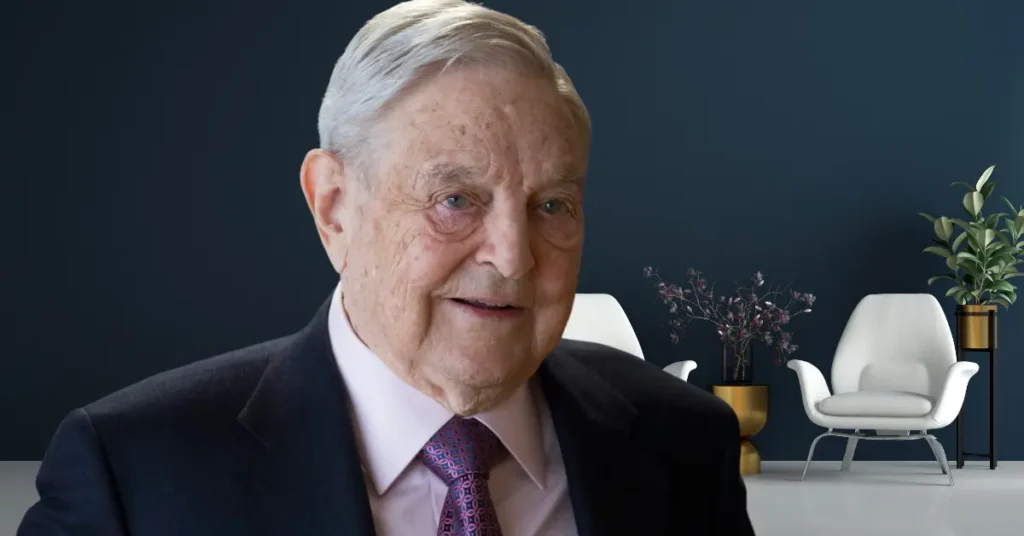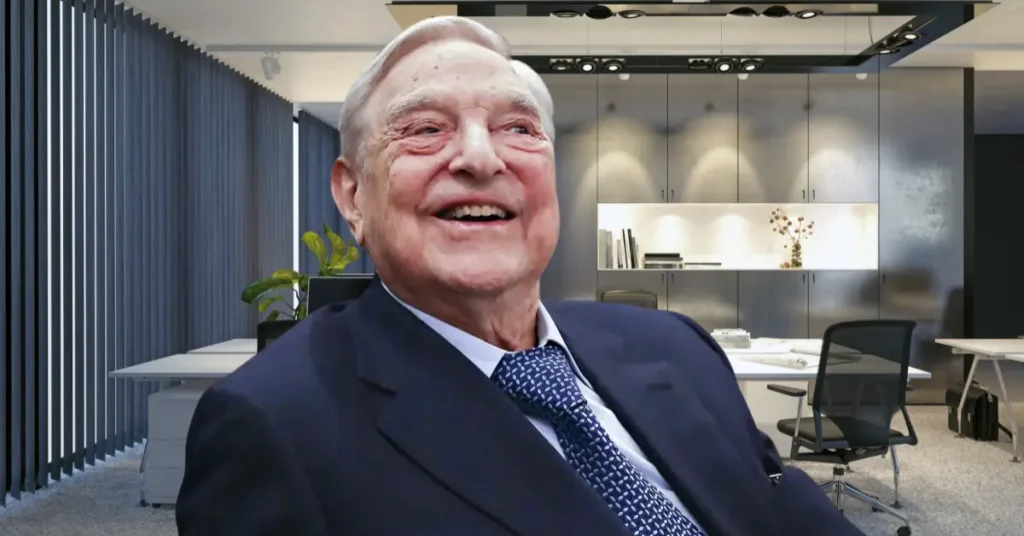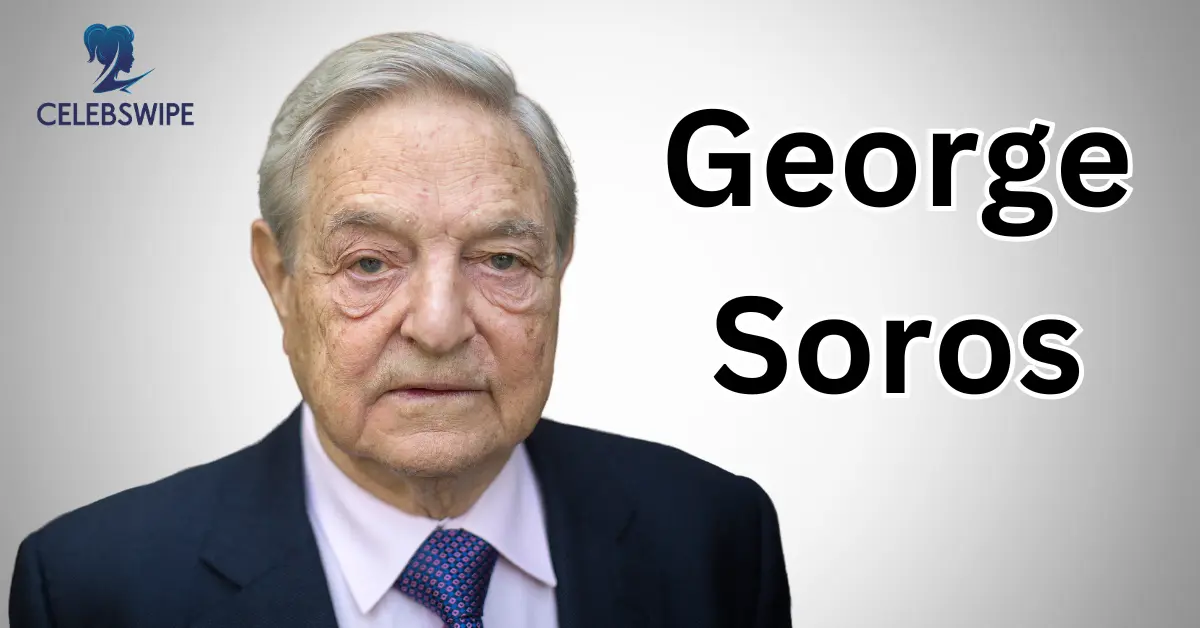George Soros is one of the most influential figures in the world of finance and philanthropy. Known as a billionaire hedge fund manager, a philanthropist, and a staunch advocate for democracy and social justice, his life story is as remarkable as it is inspiring. From surviving the Nazi occupation of Hungary to amassing a fortune through groundbreaking investments, his journey captures the essence of resilience and success. Today, his estimated net worth is around $7.2 billion, a testament to his prowess as an investor and his enduring legacy as a humanitarian.
Through his financial acumen and dedication to progressive causes, Soros has reshaped markets and societies. He founded the Quantum Fund, a pioneering hedge fund, and later established the Open Society Foundations, which has donated over $32 billion to causes like human rights, education, and justice. His influence extends across continents, making him a global icon of both wealth and altruism.
Who Is George Soros?
George Soros is a Hungarian-American businessman, widely recognized for his successful career in investment management and his advocacy for liberal politics. Born in Budapest in August 1930, Soros’s early life was shaped by the harrowing experiences of the Holocaust, as his Jewish family faced persecution during World War II.
After fleeing Hungary in 1947, he settled in England and studied at the London School of Economics, where he developed his philosophical views under Karl Popper. These ideas laid the foundation for his groundbreaking theories on reflexivity in financial markets, which he later applied to his illustrious investment career.
George Soros Bio
| Category | Details |
| Full Name | György Schwartz |
| Date of Birth | August 12, 1930 |
| Place of Birth | Budapest, Hungary |
| Nationality | Hungarian-American |
| Education | London School of Economics (BSc and MSc in Philosophy) |
| Father | Tivadar Soros (lawyer and Esperanto writer) |
| Mother | Elizabeth Soros |
| Family Business | None; Soros built his wealth independently |
| Notable Investments | Founder of Soros Fund Management and the Quantum Fund |
| Net Worth | Estimated at $7.2 billion as of 2024 |
| Philanthropy | Founder of Open Society Foundations, donated over $32 billion |
| Career Highlights | Currency speculation, especially during Black Wednesday (1992), earning $1 billion |
| Personal Life | Married three times, father of five children |
| Children | Alexander, Andrea, Gregory, Jonathan, Robert |
| Hedge Fund Legacy | Revolutionized investment strategies, especially short selling |
| Political Involvement | Strong supporter of Democratic ideals, funding progressive causes worldwide |
| Notable Events | Survived the Nazi occupation of Hungary, active in rebuilding post-Soviet Europe |
| Major Publications | “The Alchemy of Finance,” “Underwriting Democracy,” “The Crisis of Global Capitalism” |
| Honors | Numerous honorary degrees and awards for philanthropy |
| Residences | Homes in New York, London, and the Hamptons |
Early Life and Education

Born into a Jewish family, George Soros survived the Nazi occupation of Hungary, an experience that deeply influenced his worldview. His family’s ingenuity and courage helped them escape persecution.
After the war, Soros moved to England and earned his degree in philosophy at the London School of Economics. He was inspired by Karl Popper’s ideas of the open society, which became a central theme in his later philanthropic work.
Early Business Experience
After graduating, Soros began his career in finance. He worked at Singer and Friedlander in London before moving to the United States in 1956. In the U.S., he joined firms like F. M. Mayer, Wertheim and Co., and Arnhold and S. Bleichroeder, where he honed his skills as a financial strategist. These roles prepared him to launch his own hedge fund, the Quantum Fund, in 1973.
Investment Career
George Soros’s financial career is legendary. In 1969, he launched the Double Eagle Fund, which later became the renowned Quantum Fund. This fund achieved unprecedented success, growing its assets from $12 million to over $25 billion at its peak. Soros became famous for his high-risk, high-reward strategies, including short selling and betting against currencies.
One of his most notable achievements came during Black Wednesday on Sept. 16, 1992, when he made $1 billion by betting against the British pound. This bold move earned him the title of “the man who broke the Bank of England.” His success continued through the Asian financial crisis in 1997, where his strategies again proved immensely profitable.
George Soros Net Worth
George Soros’s net worth is estimated at $7.2 billion as of 2024. However, his fortune once exceeded $25 billion before he began transferring the majority of his wealth to the Open Society Foundations. His remarkable financial success stems from his expertise in investment management and the innovative strategies he employed through Soros Fund Management.
In addition to his wealth, Soros’s philanthropic contributions are equally noteworthy. The Open Society Foundations has donated over $32 billion to promote human rights, education, and civil liberties worldwide. This generosity has cemented his legacy as one of the greatest philanthropists of our time.
| Year | Net Worth Estimate | Notable Contribution |
| 1992 | $1 Billion | “Black Wednesday” British Pound Trade |
| 2000 | $25 Billion | Peak Wealth Before Philanthropy |
| 2024 | $7.2 Billion | Current Net Worth After Donations |
Economic Crises in the 1990s and 2000s
Soros played a pivotal role in navigating economic crises during the 1990s and 2000s. His ability to predict and capitalize on market movements was unparalleled. During the Asian financial crisis, he faced criticism for his speculative practices, but he defended his actions as being aligned with free-market principles. Despite controversies, Soros’s insights into financial markets helped shed light on systemic flaws in global economies.
Société Générale Insider Trading Conviction
In 2002, Soros faced legal challenges related to insider trading involving Société Générale. While the conviction tarnished his reputation, it did little to diminish his influence in the financial world. Soros continued to focus on his philanthropic endeavors, further distancing himself from these controversies.
Political Involvement

George Soros is deeply involved in politics, particularly through his support for democratic ideals and progressive causes. His contributions to the Democratic Party in the United States have sparked both praise and criticism. Soros has also funded initiatives promoting human rights and civil liberties in Central and Eastern Europe, Africa, and beyond.
Soros’s advocacy extends to areas like drug policy reform, diplomacy, and education. His establishment of the Central European University in Budapest highlights his commitment to fostering knowledge and critical thinking in regions transitioning from authoritarian regimes to democracy.
Wealth and Philanthropy
George Soros’s philanthropic work is unparalleled. Through the Open Society Foundations, he has supported countless initiatives aimed at promoting social justice, education, and human rights. His donations, which total over $32 billion, have had a profound impact on issues ranging from racial equality to climate change.
His contributions to education are particularly noteworthy. The founding of the Central European University in Budapest created a hub for intellectual discourse and research. Soros’s commitment to fostering a more equitable world makes him a role model for aspiring philanthropists and financiers alike.
Personal Life
In his personal life, George Soros has been married three times and has five children. His current wife, Tamiko Bolton, is actively involved in his philanthropic ventures. Soros’s family shares his passion for social causes, with many of his children following in his footsteps as philanthropists and entrepreneurs.
Despite his wealth and fame, Soros remains a deeply private individual. He splits his time between his homes in the United States and Europe, where he continues to engage with global issues. His life story is a testament to the power of resilience, vision, and generosity.
Wife and Children
| Category | Details |
| Current Wife | Tamiko Bolton (married in 2013) |
| Previous Wives | Annaliese Witschak (1960–1983), Susan Weber (1983–2005) |
| Children | Alexander Soros, Andrea Soros Colombel, Gregory Soros, Jonathan Soros, Robert Soros |
| Notable Facts | Alexander Soros is an active philanthropist; Jonathan and Robert are involved in finance. |
Political Involvement
George Soros has played a pivotal role in political and social causes across the globe. A staunch supporter of Democratic ideals, he has dedicated significant resources to promoting democracy, human rights, and freedom of expression. Through his Open Society Foundations, Soros has donated billions to grassroots organizations, advocating for transparency, civil rights, and free societies.
His influence has been particularly pronounced in Central and Eastern Europe, where he helped countries transition from communism to democracy after the fall of the Soviet Union. Soros was instrumental in establishing the Central European University in Budapest, a hub for progressive academic thought and leadership development.
In the United States, Soros has been a prominent donor to the Democratic Party, championing causes such as social justice, criminal justice reform, and climate change. His political involvement is not without controversy. Critics often accuse him of wielding disproportionate influence on global politics, with conspiracy theories frequently targeting his actions.
Despite this, Soros remains steadfast in his mission to challenge authoritarian regimes and support marginalized communities. His advocacy extends to regions like Africa, where he has funded initiatives to improve education, healthcare, and governance. Soros’s commitment to democratic values has made him one of the most impactful and polarizing figures in modern politics.
Honors and Awards
| Honor/Award | Details |
| Schumpeter Prize | Recognized for his innovative work in economics and reflexivity theory. |
| Honorary Degrees | Over a dozen honorary degrees, including from Oxford University, Yale University, and University of Bologna. |
| Time Magazine’s 100 Most Influential People | Featured for his profound impact on global politics and economics. |
| Roosevelt Freedom from Want Medal | Awarded for his philanthropic efforts promoting human rights and social welfare. |
| Council on Foundations Recognition | Celebrated for advancing global philanthropy through the Open Society Foundations. |
| Central European University Contribution | Honored for founding and supporting this institution promoting democracy and open societies. |
| Other Awards | Numerous recognitions for his advocacy of democracy, human rights, and progressive values. |
George Soros’s honors and awards showcase his dedication to reshaping finance, promoting open societies, and advancing democracy worldwide. These accolades underline his influence as both an investor and philanthropist.
Publications and Scholarship

George Soros is not just a legendary financier; he’s also a prolific author and thinker whose works have significantly contributed to global economic and political discourse. His publications primarily focus on economics, financial markets, political theory, and his advocacy for open societies. These works are widely referenced and have shaped the thinking of scholars, investors, and policymakers worldwide.
One of Soros’s most notable books is “The Alchemy of Finance”, published in 1987, where he introduces his groundbreaking theory of reflexivity in financial markets. This theory challenges traditional market assumptions by explaining how investor perceptions can influence and even drive market trends. The book remains a must-read for anyone studying finance or market dynamics. Another pivotal work, “Underwriting Democracy”, published in 1991, explores his efforts in rebuilding post-communist societies in Central and Eastern Europe through his Open Society Foundations.
In “The Crisis of Global Capitalism” (1998), Soros critiques unregulated global financial markets and offers his vision for reforming capitalism to prevent economic crises. His 2006 book, “The Age of Fallibility”, delves into America’s foreign policy and its impact on global democracy. Throughout his career, Soros has also published essays, op-eds, and articles in renowned outlets like The Financial Times and The New York Times. These writings address pressing global issues, such as rising authoritarianism, climate change, and the role of philanthropy in fostering equitable societies.
Academic Contributions and Endowments
Beyond his writings, Soros’s contributions to academia are immense. He has funded and supported numerous educational initiatives, the most prominent being the establishment of the Central European University (CEU) in 1991. Based in Budapest initially, the CEU aimed to promote open societies and critical thinking in post-Soviet Europe. It has since become a globally recognized institution known for its academic rigor and commitment to advancing democracy and human rights.
Soros has also provided funding for scholarships, research programs, and academic institutions worldwide. His Open Society Foundations have awarded grants to countless scholars, researchers, and activists pursuing studies in law, political science, public policy, and more. Through these efforts, Soros has created a legacy that extends far beyond finance, empowering individuals to challenge systems of oppression and inequality through education and intellectual inquiry.
Frequently Asked Questions
What is George Soros’s net worth?
As of 2024, George Soros’s net worth is estimated at $7.2 billion, though he has donated over $32 billion to philanthropic causes through his Open Society Foundations.
What is George Soros known for?
George Soros is known as a legendary hedge fund manager, founder of the Quantum Fund, a major philanthropist, and a strong advocate for open societies and progressive causes.
How did George Soros make his fortune?
Soros made his fortune through currency speculation, notably earning $1 billion during Black Wednesday (1992), and through his pioneering investment strategies at Soros Fund Management.
What is George Soros’s role in philanthropy?
Soros is the founder of the Open Society Foundations, through which he has funded democracy, human rights, education, and social justice initiatives worldwide.
Conclusion
George Soros’s life story is one of resilience, vision, and profound impact. From surviving the Nazi occupation of Hungary to becoming a global financier, philanthropist, and political activist, his journey embodies the power of determination and intellect. His groundbreaking theories in finance, coupled with his dedication to creating a more just and open world, have left an indelible mark on both the financial world and society at large.
Despite controversies surrounding his political involvement and financial strategies, Soros’s legacy as a philanthropist remains untarnished. His contributions, especially through the Open Society Foundations, continue to influence global democracy, human rights, and education, ensuring that his impact will be felt for generations to come.

